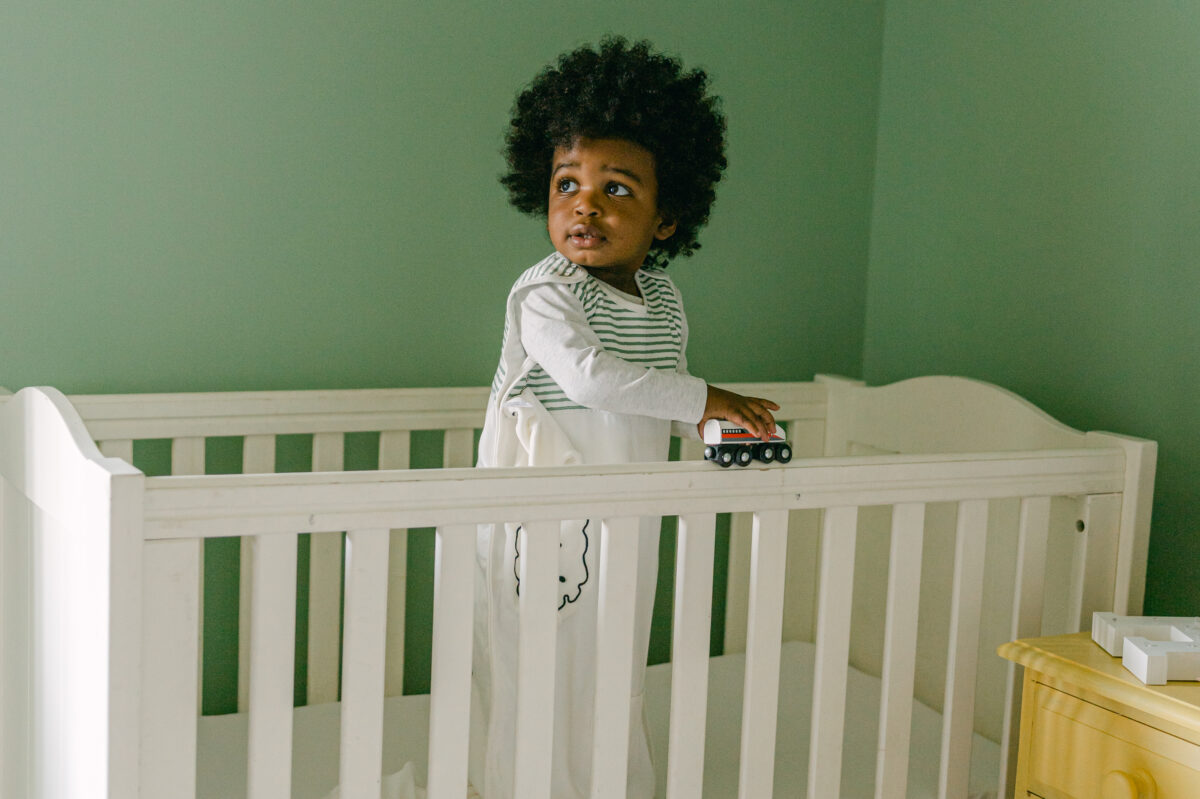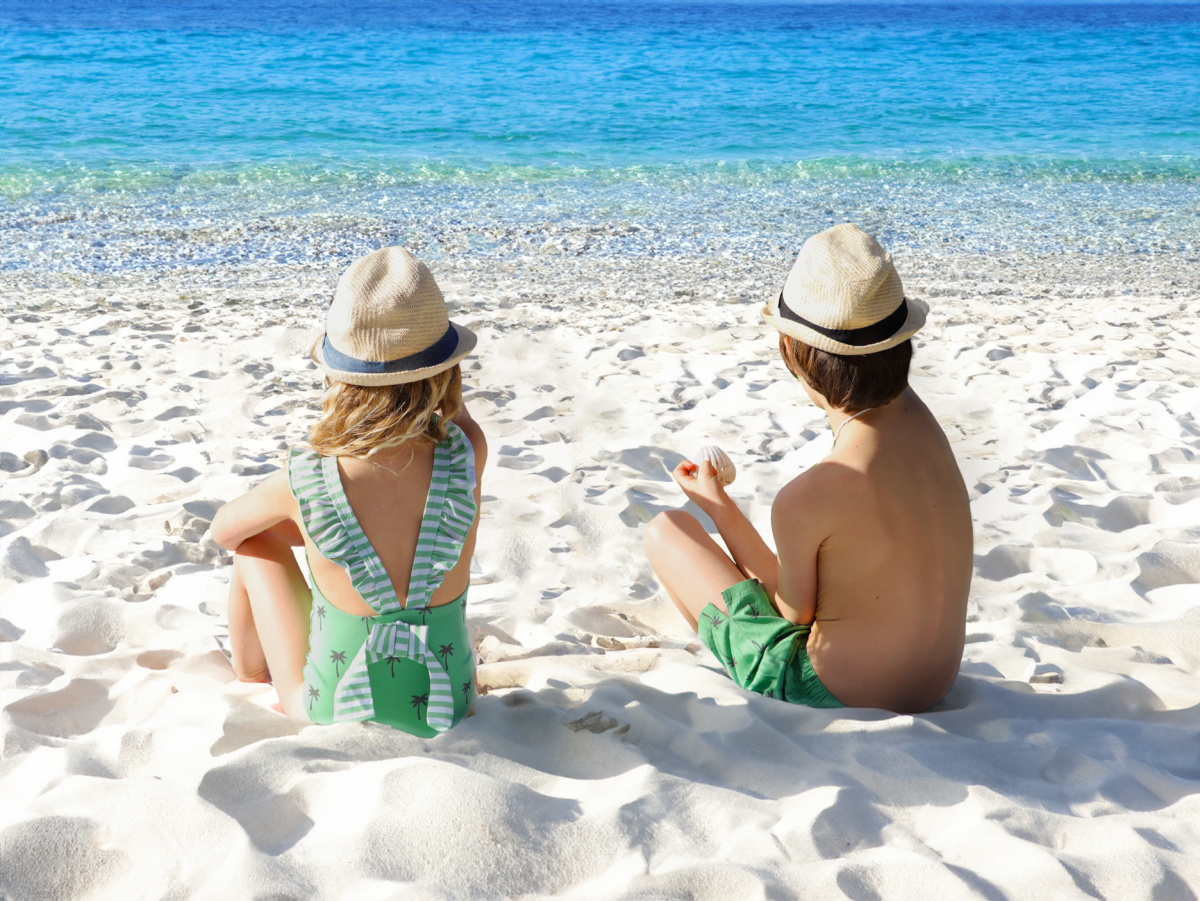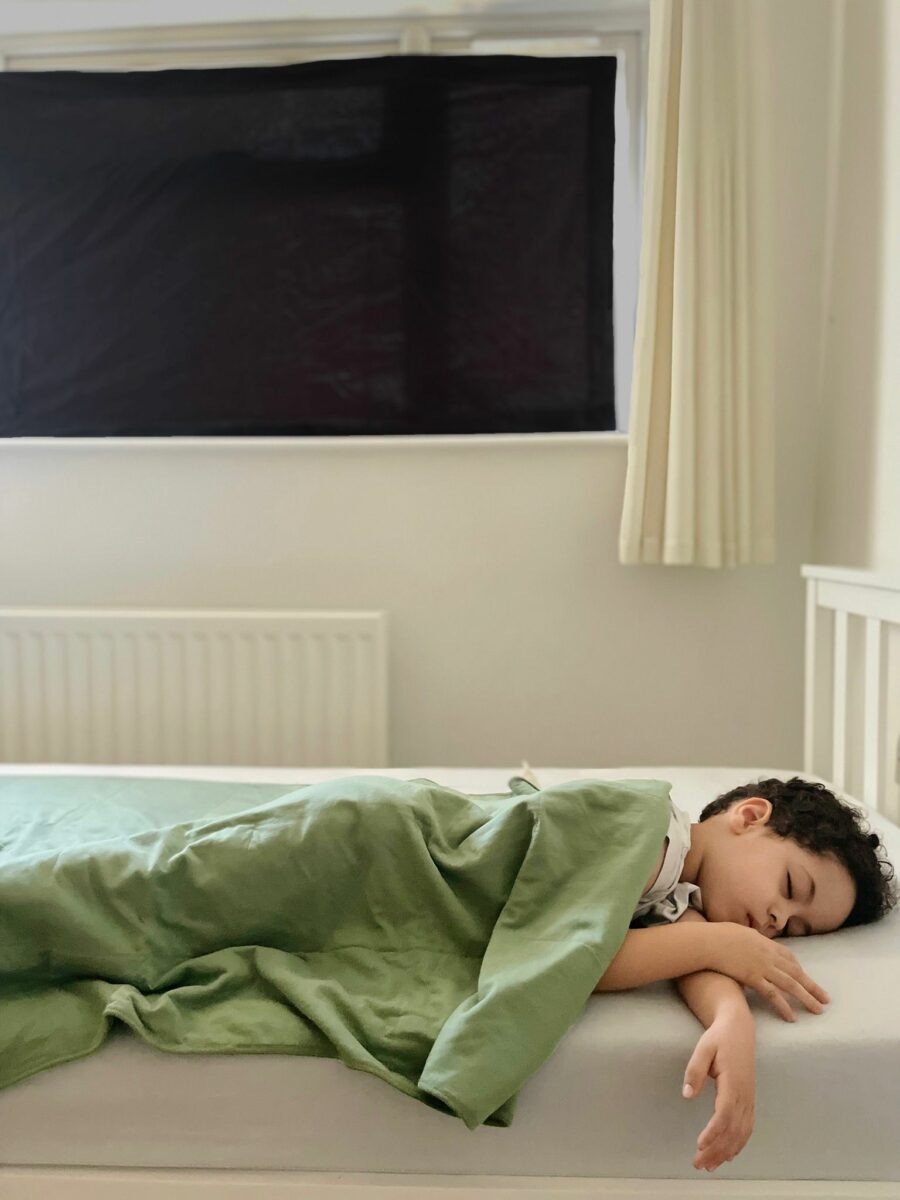
When temperatures soar it can be harder to navigate sleep, sun safety and unpolluted air while also looking out for the planet.
As parents, our priority is the health and happiness of our little ones, especially during the sun-drenched days of summer. During heat waves our child’s comfort and safety becomes even more critical. However, navigating the safety of our children during these warmer months doesn’t have to compromise your children’s health or your eco-conscious values.
Here’s your comprehensive guide with 5 topics to consider to ensure your little ones stay safe and comfortable in the summer months, encompassing everything from sleepwear and bedroom cooling tips to safe car practices and the essential benefits of UPF 50+ swimwear.
Let’s dive in
1. Dressing Your Baby for Sleep in Hot Weather
Hot nights can be challenging for babies, who, unlike adults, cannot regulate their body temperature very effectively. This makes choosing the right sleepwear crucial. Opt for natural, breathable fabrics like our Tropical Nights sleeping bag, made from 100% plant-based modal fabric. Avoiding polyester sleepwear is key on warmer evenings. Not only does it help to reduce risks of overheating but it also supports our commitment to a plastic-free planet. Unfortunately, due to its cheap and convenient properties, polyester is now a common material in sleepwear that traps heat and sheds microplastics. Polyester inhibits the body’s natural ability to regulate temperature which means that overheating becomes a bigger risk. Despite this, over 95% of sleeping bag brands in the UK use a polyester wadding, so it’s important to read the small print on the labels to make sure yours doesn’t.
2. Keeping Your Baby’s Bedroom Cool and Dark
A cool, dark bedroom is key to promoting restful sleep. Use organic blackout blinds to block out early sunrise or late sunset, maintaining a dark, cave-like environment conducive to sleep. To cool the room, avoid using air conditioning, which can circulate airborne pollutants. Instead, opt for natural ventilation—open windows in the early morning or late evening to let cooler air circulate and once the day gets hot keep windows and curtains closed to keep the warm air out. Consider using eco-friendly fans placed safely away from the crib to avoid direct air flow on your baby. It’s important to remember that pointing a fan directly at a sleeping infant can be extremely dangerous as it can cause their body temperature to drop very fast and very suddenly.
3. Choose Natural Sun Cream Protection and UPF 50+ Swimwear
While we love to enjoy the benefits of all the wonderful vitamin D the summer brings, protecting your child’s skin from harmful UV rays during the intense daylight hours is non-negotiable. Given the thinning ozone layer, the sun’s rays are less filtered and more harmful, making it crucial to choose the right sun cream. Natural, mineral sun creams are essential because they don’t absorb into the bloodstream like chemical sunscreens, which can enter the body in seconds and mix intensely with sweat when heated. These chemical sunscreens also harm marine life and can react dangerously with chlorine in swimming pools, posing risks to both human health and aquatic ecosystems.
For those sensitive to thicker mineral sunscreens, there are user-friendly options available that blend easily without irritation. Brands like Fierce Nature and Shade offer formulations that are natural and gentle even on sensitive skin, providing effective sun protection without the drawbacks of chemical alternatives.
Our eco-friendly swimwear range offers UPF 50+ protection, made from organic cotton that’s gentle on skin and the environment. Unlike synthetic fabrics, our swimwear doesn’t contribute to microplastic pollution, making every splash a step towards a cleaner ocean.

4. Buggy and Car Seat Safety in the Heat
For buggy safety, steer clear of covering it with blankets, which can inhibit air circulation and lead to overheating. Instead, use a breathable, organic cotton muslin with a sunshade attachment to provide protection without compromising airflow.
In cars, the interior can heat up rapidly which causes two main risks: 1) Babies overheating and 2) Toxic chemicals released into the air in the car . Planning and preparation can make all the difference in keeping car journeys safe and comfortable. Dress your little one in light, airy clothes and pre-cool the car before embarking on journeys. Opening windows will allow for cooling airflow as well as let out the toxic air pollutants which build up in the heat. Always ensure the car seat is shaded, using lightweight, natural fabric car seat covers can also prevent buckles from becoming too hot and remember to never leave children unattended in a vehicle.
5. Choosing Eco-Friendly Products for Health and Planet
Hot weather can also turn everyday items even more toxic, especially those made of PVC, known as the ‘poison plastic.’ Every product choice we make impacts our children’s health and the well-being of our planet. PVC emits harmful chemicals when heated by the sun which are easily breathed in, making products like buggy rain covers, paddling pools, and conventional blackout blinds dangerous. These products release chemicals faster when warm, posing significant health risks. To avoid exposure, keep such items out of direct sunlight, refresh water in paddling pools frequently, and avoid leaving PVC blackout blinds in sunny windows on hot days.
Polyester is another plastic which reacts badly to heat and when in contact with heat and sweat it releases harmful chemicals which can be absorbed by the skin.
By opting for eco-friendly, natural alternatives—from sleeping bags and swimwear to everyday essentials—we protect our little ones from harmful chemicals and contribute to a more sustainable future. For example, our non-toxic blackout blinds are made from 100% organic cotton, which are safe for both home and travel use and don’t release toxins when heated from the sun.

This summer, let’s commit to eco-friendly child safety while honouring our responsibility to the planet. By making informed, conscious choices, we pave the way for a healthier, greener future for all.
